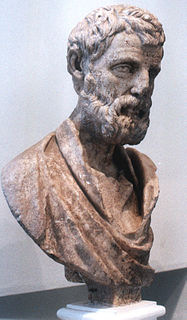 W
WA philanthropist is someone who engages in philanthropy; donating their time, money, and/or reputation to charitable causes. The term may apply to any volunteer or to anyone who makes a donation, but the label is most often applied to those who donate large sums of money or who make a major impact through their volunteering, such as a trustee who manages a philanthropic organization or one who establishes and funds a foundation.
 W
WAli ibn Abi Talib was a cousin, son-in-law and companion of the Islamic prophet Muhammad. He ruled as the fourth Rightly Guided caliph from 656 until his assassination in 661 and is one of the central figures in Shia Islam, being regarded as the rightful immediate successor to Muhammad and the first Imam by all branches of Shia Muslims. He is the son of Abu Talib and Fatimah bint Asad, the husband of Fatimah al-Zahra, and the father of Hasan, Husayn and Zaynab.
 W
WIsabelle Brunelle (1724–1805), countess d'Harscamp, was a refugee and philanthropist.
 W
WMrs Louisa Daniell was a Protestant philanthropist known for her work among the poor of The Midlands but most especially for her Soldiers' Home and Institute in the garrison town of Aldershot in the United Kingdom during the Victorian era.
 W
WAl-Hasan ibn Ali ibn Abi Talib, also spelled Hasan or Hassan, was the older son of Ali and Muhammad's daughter Fatimah, and was the older brother of Husain, as well as the fifth of Rashidun, or "Rightly Guided Caliphs". Muslims respect him as a grandson of the Islamic prophet Muhammad. Among Shia Muslims, Hasan is revered as the second Imam. Hasan was elected for the caliphate after his father's death, but abdicated after six or seven months to Muawiyah I, the founder of the Umayyad dynasty to end the First Fitna. After Hasan's abdication, the caliphate turned into kingship. Al-Hasan was known for donating to the poor, his kindness to the poor and bondsmen, and for his knowledge, tolerance and bravery. For the rest of his life, Hasan lived in Medina, until he died at the age of 45 and was buried in the Jannat al-Baqi cemetery in Medina. His wife, Ja'da bint al-Ash'at, is commonly accused of having poisoned him. He is also the common agnatic ancestor of both the House of Hashim, the House of Alawi, and the current House of Bolkiah.
 W
WMas'uda al-Wizkitiya, known popularly in Morocco as Lala 'Auda and in Western sources as Lalla Masuda, was a Moroccan political figure in the Saadi Dynasty. She is remembered for her humanitarian, charity, political, and development work. She was the mother of the Saadi sultans Ahmad al-Mansur and Abd al-Malik I.
 W
WMary Kinnaird or Mary Jane Kinnaird, Lady Kinnaird; Mary Jane Hoare (1816–1888) was an English philanthropist and co-founder of the Young Women's Christian Association. Kinnaird has at least one school and hospital in India named after her.
 W
WHortensia Mata Lamota was an Ecuadorian businesswoman and philanthropist. She was considered the First Lady of Cuenca due to her political, economic, and cultural influence. She made financial contributions and raised funds during the Peru-Ecuador Conflict.
 W
WGeorge Soros is a Hungarian-born American billionaire investor and philanthropist. As of March 2021, he had a net worth of US$8.6 billion, having donated more than $32 billion to the Open Society Foundations, of which $15 billion have already been distributed, representing 64% of his original fortune, making him the "most generous giver" according to Forbes.
 W
WSoros: The World's Most Influential Investor is a best selling non-fiction book by Robert Slater, first released by McGraw Hill in 1996, that describes the early life, education, work, and philanthropy of a man many consider to be the most influential and successful investor of the twentieth century.